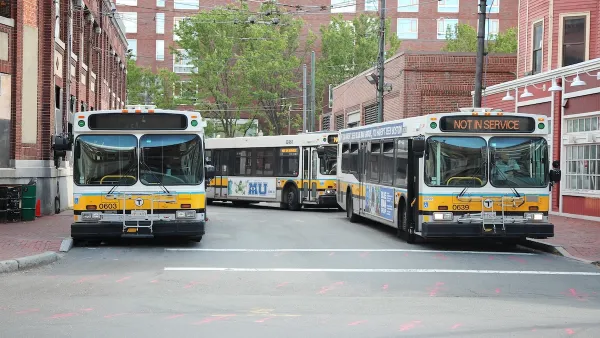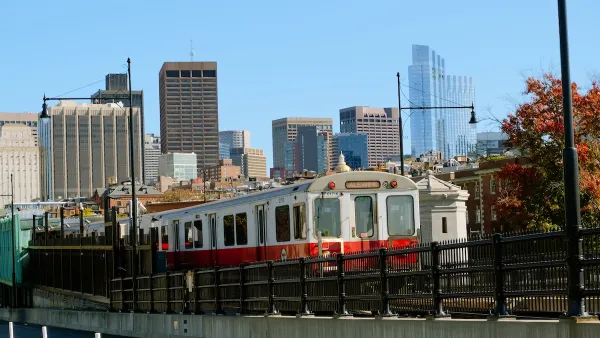Anthony Flint reflects on the story of economic development and historic preservation that led to the saving of Boston's historic Fenway Park from demolition in the 1990s.
Flint discusses the confluence of factors (aging infrastructure, need for more seats and revenue) leading to calls for the historic treasure's demolition, various plans for replacements, and the heroic effort to save the ballpark.
"Today Fenway Park has the Monster Seats and hand-crafted ales and delicious clam chowder, expanded and more comfortable seating all around, the ubiquitous luxury boxes uniquely close to the action. Watching a game at Fenway Park is an experience unlike any other."
However, there's a downside to this treasured experience, its "increasingly out of reach for middle-class families."
"It's hard to say how much the cost of all the renovations and improvements at a 100-year-old facility factors into this – the major cost being the payroll for the players – and harder still to imagine that a brand new ballpark wouldn't trigger this same kind of impact on fans. But historic preservation is always costly."
For most Bostonians, I'm guessing, the price to preserve this unique historical experience is plenty worth it.
FULL STORY: As Fenway Park Turns 100, Remember That It Almost Didn't Make It

Analysis: Cybertruck Fatality Rate Far Exceeds That of Ford Pinto
The Tesla Cybertruck was recalled seven times last year.

National Parks Layoffs Will Cause Communities to Lose Billions
Thousands of essential park workers were laid off this week, just before the busy spring break season.

Retro-silient?: America’s First “Eco-burb,” The Woodlands Turns 50
A master-planned community north of Houston offers lessons on green infrastructure and resilient design, but falls short of its founder’s lofty affordability and walkability goals.

Test News Post 1
This is a summary

Analysis: Cybertruck Fatality Rate Far Exceeds That of Ford Pinto
The Tesla Cybertruck was recalled seven times last year.

Test News Headline 46
Test for the image on the front page.
Urban Design for Planners 1: Software Tools
This six-course series explores essential urban design concepts using open source software and equips planners with the tools they need to participate fully in the urban design process.
Planning for Universal Design
Learn the tools for implementing Universal Design in planning regulations.
EMC Planning Group, Inc.
Planetizen
Planetizen
Mpact (formerly Rail~Volution)
Great Falls Development Authority, Inc.
HUDs Office of Policy Development and Research
NYU Wagner Graduate School of Public Service




























